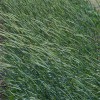 This 4-page fact sheet provides the most up-to-date information on current adapted varieties of cool-season forages. The recommendation of varieties is based on multi-location, multi-year cultivar evaluation experiments that may include trials in Georgia and other states. Table 1 includes information about the planting dates, seeding rates, and other considerations. If you have questions about a particular variety, contact your local UF/IFAS Extension agent for additional information. Written by A. R. Blount, J. M. B. Vendramini, J. C. B. Dubeux, Md A. Babar, K. E. Kenworthy, P. R. Muñoz,and K. H. Quesenberry, and published by the UF Department of Agronomy, September 2014. (UF/IFAS Photo: Josh Wickam)
This 4-page fact sheet provides the most up-to-date information on current adapted varieties of cool-season forages. The recommendation of varieties is based on multi-location, multi-year cultivar evaluation experiments that may include trials in Georgia and other states. Table 1 includes information about the planting dates, seeding rates, and other considerations. If you have questions about a particular variety, contact your local UF/IFAS Extension agent for additional information. Written by A. R. Blount, J. M. B. Vendramini, J. C. B. Dubeux, Md A. Babar, K. E. Kenworthy, P. R. Muñoz,and K. H. Quesenberry, and published by the UF Department of Agronomy, September 2014. (UF/IFAS Photo: Josh Wickam)
http://edis.ifas.ufl.edu/aa266
Tag: Forage Grasses
SSAGR59/AA197 ‘Callide’ Rhodesgrass
Revised! SS-AGR-59, a 4-page fact sheet by J. Vendramini, A. Blount, Y. Newman, C. G. Chambliss and M. B. Adjei, describes this robust, warm-season perennial grass native from Africa, useful in southern Florida for fall and winter grazing — establishment, management of established stands, and pests. Includes references. Published by the UF Department of Agronomy, March 2010.
http://edis.ifas.ufl.edu/aa197
SSAGR24/AG125 Five Basic Steps to Successful Perennial Pasture Grass Establishment From Vegetative Cuttings on South Florida Flatwoods
Revised! SSAGR24, a 4-page illustrated fact sheet by Joe Vendramini, Yoana Newman, Ann Blount, Martin B. Adjei and Paul Mislevy, describes the different steps that minimize establishment failure and lead to a favorable outcome of dense stand of perennial pasture grass. Published by the UF Department of Agronomy, March 2010.
http://edis.ifas.ufl.edu/ag125
SSAGR71/AA255 Forage Grasses for Florida’s Organic Soils
Revised! SS-AGR-71, a 3-page fact sheet by I. V. Ezenwa, R. M. Muchovej and F. M. Pate, is part of the Florida Forage Handbook. It highlights the two forage grasses recommended for the fertile organic soils of the Everglades Agricultural Area (EAA) — St. Augustinegrass and Limpograss. Includes references. Published by the UF Department of Agronomy, March 2009.
http://edis.ifas.ufl.edu/AA255